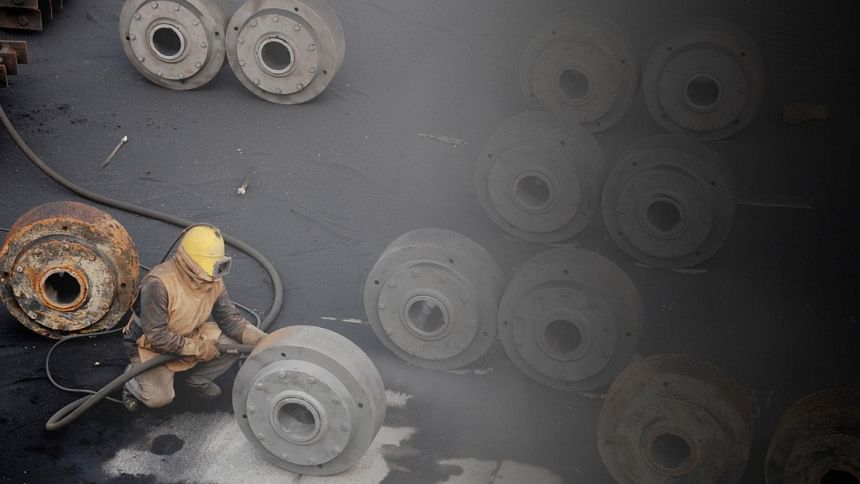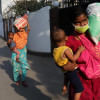Educating the youth for a safe future of work is crucial

In the Asia-Pacific region, more people than anywhere else start working from a young age. As youth, they often work in hazardous and exploitative jobs to earn income for their families. Some of this work also constitutes child labour. This year, for World Day for Safety and Health at Work, the ILO is focusing on improving the working conditions of young workers as well as bringing an end to child labour.
Young workers in the Asia-Pacific
In the Asia-Pacific, there are about 300 million workers aged between 15 and 24. These workers comprise 20 percent of the region's workforce. Often it is poverty that pushes young people to start working from an early age. They enter the workforce with virtually no knowledge about occupational hazards and risks, nor any awareness about their occupational safety and health (OSH) rights.
Some young people start working from an even earlier age. There are about 62 million children aged between 5 and 17 who are engaged in child labour. Of these, 28 million are in hazardous work. For these children, exploitative labour is a serious threat to their health and their physical and mental development.
Many young workers in the Asia-Pacific are in the informal economy and are engaged in agricultural, industrial and artisanal work. These workplaces tend to be out of the reach of OSH laws and are otherwise difficult to inspect. In addition, workers frequently lack an understanding of the importance of OSH.
Poor working conditions and a lack of OSH training often translates to higher rates of injury amongst workers who would otherwise have had a long working career ahead of them. They are also at risk of contracting occupational diseases with harmful long-term effects. For example, exposure to hazardous agents such as asbestos, pesticides and other chemicals can ultimately lead to serious diseases and potentially death.
Concerted tripartite efforts
Providing young workers with decent and safe employment opportunities is indispensable for future social and economic development. Governments, employers and workers need to build, implement and continuously strengthen a culture of prevention. Indeed, many governments are currently engaging in regular tripartite dialogues to set standards and develop national OSH policies. It is crucial that these national policies are in line with international labour standards. In particular, there should be full compliance with the ILO Promotional Framework for Occupational Safety and Health Convention, 2006 (No 187). Encouragingly, there have been increased ratifications of the Convention in the region.
Educating for a safer future of work
While efforts to improve the current state of workplaces are critical, there must also be efforts to educate future generations in OSH. By one estimate, 65 percent of children in primary school today will work in jobs that currently do not exist. In order to ensure that these jobs do not jeopardise the health and safety of future generations, it is crucial that children are educated from a young age.
Educating young people in the importance of OSH is necessary for a safe future of work. We must do all we can to ensure that young people are aware of, and protected by, OSH principles so that they too are given the chance to work in a safe and healthy workplace.
Ms Tomoko Nishimoto Assistant Director-General of the International Labour Organization and Regional Director for Asia and the Pacific.










Comments